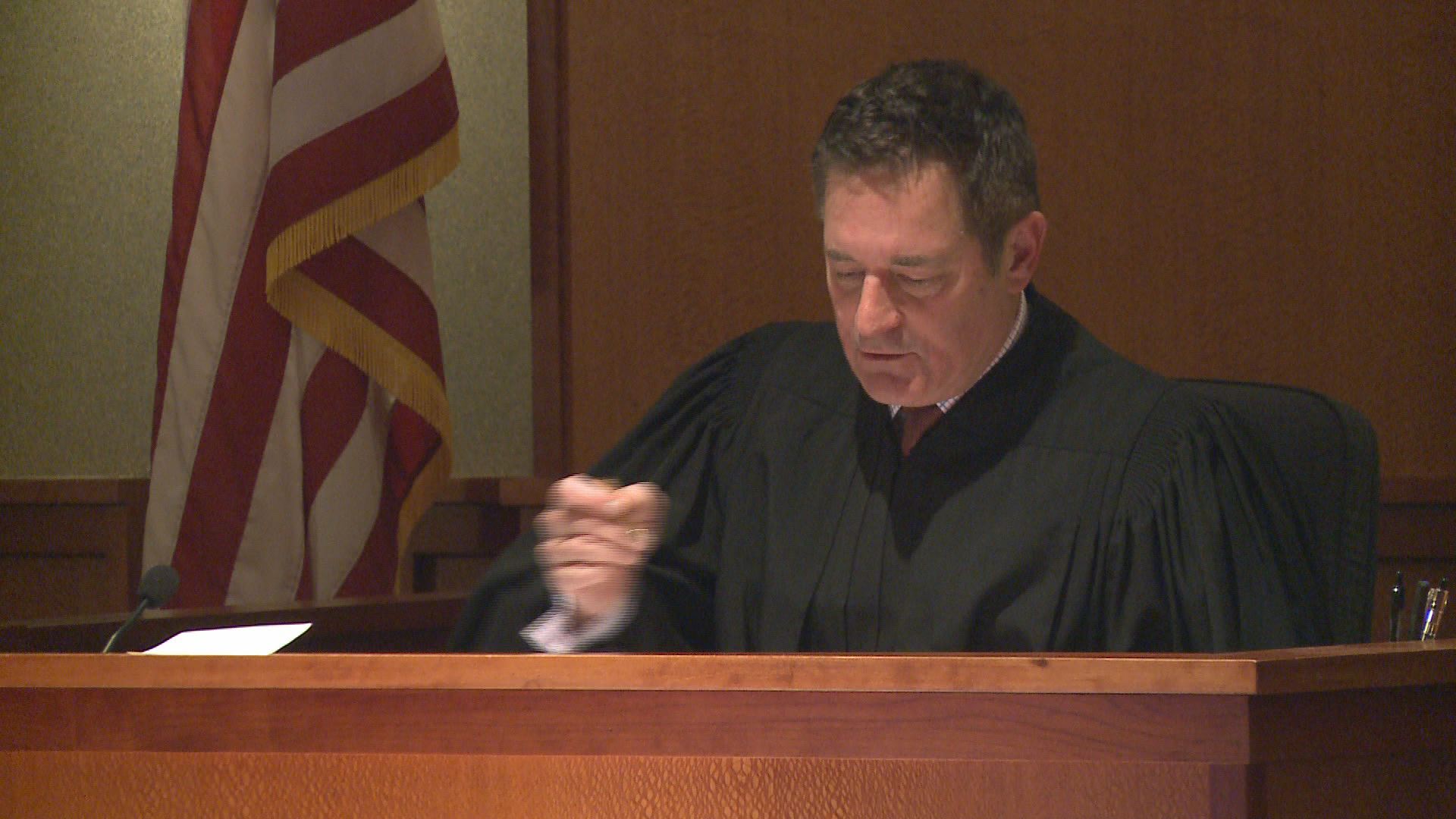PORTLAND, Maine (NEWS CENTER) -- A judge rescinded an order Wednesday that barred media from reporting on open court proceedings in a local lawyer's case.
On Monday, Judge Jeffrey Moskowitz ordered the media, which included a WCSH-TV reporter and photographer, not to report the witness's testimony in the case against well-known lawyer Anthony Sineni. NEWS CENTER's attorneys agree that the order was unconstitutional and NEWS CENTER therefore defied the order and reported the witness's testimony. The Portland Press Herald also reported the witness's testimony.
The judge called a hearing Wednesday and when he entered, said he would correct the errors he made Monday. He said that on Monday he learned that the witness, Sineni's former girlfriend, would testify and give details about her children.
"I did this in an effort to protect the witness and family," said Judge Moskowitz, while Sineni's former girlfriend sat in court, shaking her head.
The witness's testimony on Monday included details about the abuse she allegedly suffered at the hands of Sineni. She described the violence in detail and said that Sineni had told her children not report the abuse to police.
Judge Moskowitz said that he would officially unseal the documents related to the charges against Sineni and the transcript from Monday's court proceedings would also be released. He also said the order for the media not to report the testimony was rescinded.
"Courts impose sentences. They put people in jail. They fine them. And if we don't know the reasons why courts do what they do, we are all in trouble," said NEWS CENTER's First Amendment attorney Jonathan Piper said.
The First Amendment protects freedom of the press and there are numerous state and federal statutes that ensures the rights of the Freedom of Information Act and the Privacy Act. Court proceedings are typically open to the media unless the judge sees a reason to justify closed proceedings or sealed documents.
U.S. Supreme Court decisions outline the rules necessary for closing court cases to the public. The Reporter's Committee for Freedom of the press explains that the judge must hold a hearing on the need for secrecy and allow the media to contest it. If the judge does decide to close it, he or she must give a written order outlining why.
In open court proceedings, like the Sineni case, the U.S. Supreme Court has ruled that courts may rarely prevent the media from reporting on court proceedings and documents. The U.S. Supreme Court has written that gag orders on the media are only to be used in "extreme cases" where the "the evil that would result from the reportage is both great and certain and cannot be mitigated by less intrusive measures." In Nebraska Press Assn. v. Stuart, the Chief Justice Warren Burger delivered the opinion that, "There is, beyond peradventure, a clear and substantial damage to freedom of the press whenever even a temporary restraint is imposed on reporting of material concerning the operations of the criminal justice system, an institution of such pervasive influence in our constitutional scheme."
The attorney for Sineni's former girlfriend declined to comment after the judge rescinded the order and said said the transcripts speak for themselves.
Sineni was originally charged with three counts of tampering with a witness and theft by receiving stolen property, which are felonies, as well as domestic assault. Those charges were dismissed and replaced with two lesser charges, simple assault and disorderly conduct on Monday in court.


